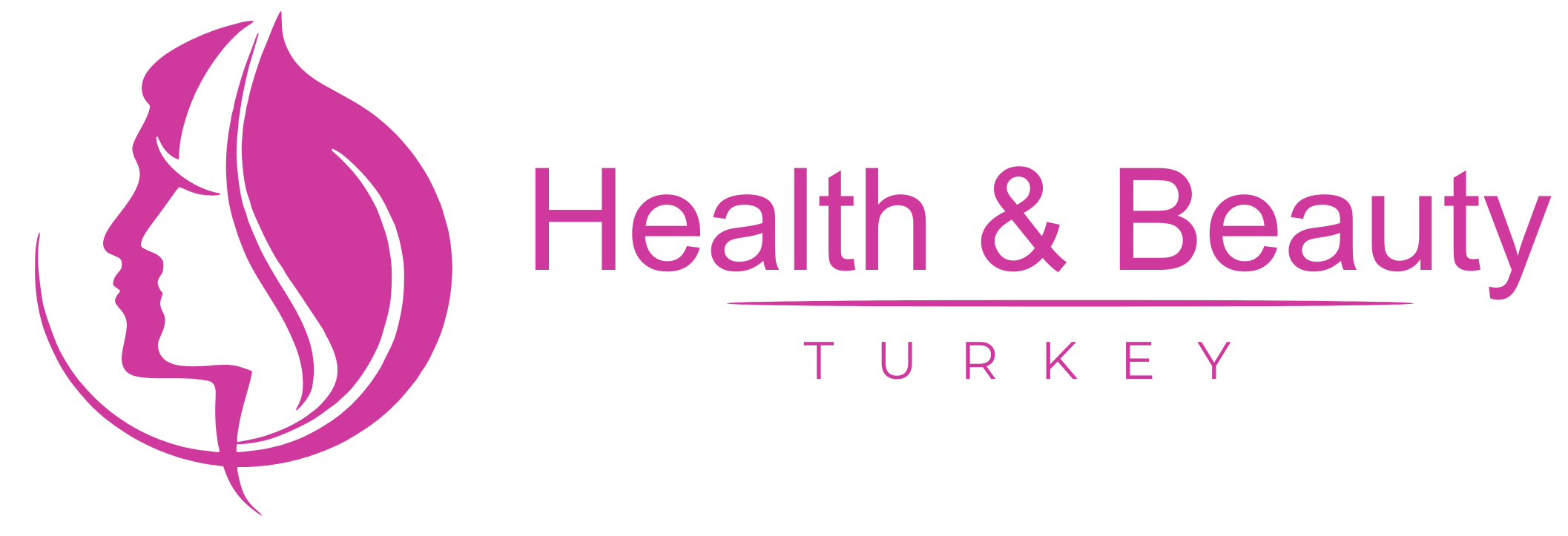Jaw Surgery in Turkey: Restoring Harmony and Function with Confidence and Safety
Jaw surgery is an advanced medical procedure aimed at correcting deformities and structural defects in the upper and lower jawbones. This innovative surgery seeks to restore the aesthetic harmony of the face, improve chewing, breathing, and speech functions, and enhance patients’ self-confidence.
In recent years, Turkey has emerged as a leading global destination for medical tourism, especially in facial and jaw surgeries, owing to its high-level medical expertise, advanced surgical techniques, safe and comfortable treatment environment, in addition to highly competitive prices.
If you are considering jaw surgery, you might feel some anxiety about potential risks or the difficulty of the procedure. These concerns are natural and legitimate, especially when thinking about traveling to another country for medical treatment. At “Health & Beauty Turkey,” we fully understand these worries. Therefore, we provide all our patients with comprehensive health tourism insurance services, ensuring your safety and peace of mind throughout your treatment journey.
In this comprehensive article, we will cover everything you need to know about jaw surgery in Turkey, from the medical reasons that necessitate it, to the latest techniques used, through the patient’s step-by-step experience, and how our center can guarantee you the best and safest results.
Understanding Jaw Surgery: Causes, Diagnosis, and Modern Research
What is Jaw Surgery?
Jaw surgery, also known as Orthognathic Surgery, is a type of corrective surgery that addresses inconsistencies between the upper and lower jawbones, or between the teeth and jaws. The primary goal is to precisely realign the jaws to improve occlusion (the way the upper and lower teeth meet), achieve aesthetic balance for the patient’s face, and correct functional problems that affect quality of life.
Common Reasons That Necessitate Jaw Surgery:
Jaw problems can result from genetic causes, environmental factors, injuries, or growth disorders. Among the most prominent problems that require jaw surgery are:
- Maxillary Prognathism: When the upper jaw is significantly forward of the lower jaw, leading to a “long face” appearance and difficulty closing the lips.
- Maxillary Retrognathism: When the upper jaw is set back, making the nose appear prominent and the mouth sunken.
- Mandibular Prognathism: Also known as a “large lower jaw” or an “underbite,” where the lower jaw protrudes noticeably beyond the upper jaw.
- Mandibular Retrognathism: When the lower jaw is set back, giving the chin a weak appearance and affecting the jawline.
- Midline Discrepancy: When the midlines between the upper and lower front teeth do not match up.
- Malocclusion Problems: Difficulty in closing the mouth properly, gaps between teeth, or crowding of teeth, especially those that cannot be corrected with orthodontics alone.
- Breathing Problems: Such as obstructive sleep apnea, where jaw surgery can widen the airway.
- Difficulty chewing or eating.
- Difficulty with clear speech.
- Temporomandibular Joint (TMJ) Disorders: In some cases, structural jaw problems can contribute to this pain.
- Aesthetic Reasons: To improve overall facial harmony, define the jawline, and achieve a more balanced appearance.
Risk Factors:
There are no specific risk factors in the traditional sense for developing jaw problems, as they are often related to normal or abnormal growth. However, a family history of similar issues may increase the likelihood of their occurrence.
Diagnosis:
Diagnosis begins with a thorough clinical examination by a specialist in maxillofacial surgery or a specialized cosmetic surgeon. The examination includes a comprehensive assessment of facial symmetry, jaw position, occlusion, and the functions of chewing, speech, and breathing.
Advanced diagnostic tools are used for a precise evaluation of the skeletal and dental structure, such as:
- X-rays: Including a Panoramic X-ray and a Lateral Cephalometric X-ray to assess the structure of the jaw and skull.
- Computed Tomography (CT) Scan: Provides detailed 3D images of the jawbones and teeth, which is essential for accurate surgical planning.
- Dental Models: Impressions of the teeth are taken to create 3D models to study the occlusion.
- Photography: To assess the external appearance of the face and smile.
Latest Research Updates:
The field of jaw surgery is constantly evolving. Recent research focuses on:
- Minimally Invasive Techniques: To reduce scarring and recovery time.
- 3D Computer Simulation: Allows surgeons to plan the operation with extreme precision, predict outcomes, and even use 3D printing to design custom surgical tools.
- Use of Advanced Biomaterials: Such as materials used for bone fixation, which may enhance healing.
- Focus on Function and Aesthetics Together: Moving beyond just correcting occlusion to achieving a comprehensive functional and aesthetic balance for the face.
Who are the Ideal Candidates for Jaw Surgery?
Jaw surgery is an excellent option for individuals suffering from significant structural jaw problems that affect their quality of life. Ideal candidates typically have:
- Completed Jaw Growth: Surgery is usually recommended after bone growth is complete, often in the late teens or early twenties, but this varies from person to person.
- Good General Health: The patient must be in good health to tolerate surgery and anesthesia and should not have uncontrolled chronic diseases that could increase surgical risks.
- Clear Functional or Aesthetic Problems: They suffer from difficulties in chewing, speaking, breathing, or have noticeable deformities in the shape of the face and jaws.
- Strong Motivation for Improvement: Commitment to pre- and post-operative instructions, including the orthodontic period that may precede or follow the surgery.
- Realistic Expectations: A full understanding of the procedure’s course, recovery, and expected outcomes.
Who May Not Be an Ideal Candidate?
- Individuals whose jaws have not finished growing: They may need to wait or consider other treatment options.
- Heavy Smokers: Smoking can negatively affect the healing process, and patients are often asked to quit smoking well in advance of the surgery.
- Individuals with active inflammatory diseases in the mouth or gums.
- People with unrealistic expectations: The patient must understand that the surgery aims for improvement, not absolute perfection.
- Individuals who cannot commit to post-operative care instructions: The recovery period requires special attention.
Preparing for the Treatment Journey: A Step-by-Step Guide to Jaw Surgery in Turkey
When you decide to undergo jaw surgery in Turkey, advance planning is key to a successful experience. At “Health & Beauty Turkey,” we accompany you every step of the way:
Before Travel:
- Initial Consultation: Your journey begins with a detailed consultation with our medical representative. We will assess your case based on the information and photos you provide, and if you are a suitable candidate, we will offer you preliminary information about the procedure, available options, and price estimates.
- Preliminary Diagnosis: We may ask you to undergo some initial tests in your home country, or we will arrange for them upon your arrival in Turkey.
- Financial Planning: After providing a detailed price estimate, you can start arranging your finances. Remember that prices in Turkey are highly competitive compared to Western countries.
- Booking Travel and Accommodation: Our team will assist you in organizing flight and accommodation bookings in hotels near our certified hospitals.
Upon Arrival in Turkey:
- Comprehensive Medical Examinations: Before the surgery, you will undergo a series of comprehensive check-ups at the hospital to ensure you are in the best possible health. These tests include:
- Blood Tests: To assess kidney and liver function, check blood count, sugar levels, and clotting factors.
- Electrocardiogram (ECG): To evaluate heart health.
- Lung Function Tests: To assess respiratory capacity.
- X-rays and CT Scans: To confirm the surgical plan.
- A thorough medical examination: With the anesthesiologist.
- Direct Consultation with the Surgeon: You will meet the surgeon face-to-face to discuss the treatment plan in detail, including goals, the surgical procedure, expected outcomes, potential risks, and the recovery period. The surgeon will explain everything with complete clarity.
- Orthodontic Planning (If Necessary): In many cases, it is necessary to place braces on the teeth before surgery to prepare the teeth for the new spaces, or after surgery to achieve the perfect occlusion. If you need braces, they will be fitted at this stage.
- Lifestyle Adjustments:
- Stop Smoking: If you are a smoker, you must stop smoking well in advance of the surgery (usually 4-6 weeks) and continue to abstain after the surgery to avoid healing problems.
- Avoid Certain Medications: You will be asked to stop taking certain medications like aspirin and herbal supplements that may increase blood thinning.
- Healthy Nutrition: Follow a balanced diet that promotes overall health.
After the Surgery and Recovery Period: What to Expect After Jaw Surgery
Understanding the post-operative stages is crucial for a smooth and positive recovery experience.
Immediately After the Surgery:
- Recovery Room: You will wake up in the recovery room under constant monitoring. You may feel some pain, swelling, and numbness.
- Immediate Care: You will be given pain relievers and antibiotics to prevent infection.
- Nutrition: You will typically be able to drink clear liquids within a few hours after regaining full consciousness. In the first few days, you will rely on liquid or pureed foods.
- Swelling and Bleeding: Swelling and bruising are normal, as is some bleeding from the surgical sites. Special bandages or supportive masks may be applied.
- Breathing: You may feel some congestion and difficulty breathing through your nose due to swelling.
Initial Recovery Period (First to Second Week):
- Sleep: It is advisable to sleep with your head elevated (using extra pillows) to reduce swelling.
- Oral Hygiene: Maintaining oral hygiene is vital to prevent infection. You will be given detailed instructions on how to gently clean your teeth and gums using a soft toothbrush and a special mouthwash.
- Nutrition: You will gradually transition to soft foods, then to semi-solid foods. Avoid hard, chewy, spicy, or acidic foods that might irritate the wounds.
- Physical Activity: Strenuous activities and heavy lifting should be avoided. Light walking is permissible.
- Suture Removal: If there are non-absorbable stitches, they will be removed during a follow-up visit.
Mid-Recovery (Second to Sixth Week):
- Swelling Subsides: Swelling and bruising will begin to fade significantly.
- Return to Activities: Most patients can return to work or school after the second or third week, depending on the nature of their work and how comfortable they feel.
- Sensation Restoration: Sensation in the cheeks, lips, and chin will gradually return, which may take several weeks or months.
- Restoration of Chewing Ability: You can gradually start introducing more solid foods into your diet, based on the surgeon’s instructions.
Long-Term Recovery (One Month to a Year):
- Final Results: The aesthetic and functional results will start to become clearly visible as internal swelling continues to subside.
- Braces Removal (if present): At the end of this stage, braces are usually removed if they were used.
- Regular Visits: You will continue to visit the surgeon and orthodontist (if necessary) to ensure the best results are achieved and maintained.
- Full Return to Activity: You can return to all normal activities, including sports.
Treatment Options in Turkey
Turkey prides itself on having the latest technologies and equipment used in jaw surgery, thanks to its significant investments in the healthcare and medical tourism sectors. Surgeons in Turkey rely on:
- Computer-Guided Surgery: Using 3D planning software, the surgeon can accurately simulate the surgery on a computer before performing it, which reduces surgery time and increases the precision of the results.
- 3D Imaging and 3D Printing: These technologies are used to create precise models of the jawbones, which aid in surgical planning and the fabrication of custom metal fixation plates if necessary.
- Minimally Invasive Techniques: Wherever possible, smaller surgical incisions and techniques that reduce trauma to tissues are used, leading to a faster recovery period and less scarring.
- Advanced Surgical Equipment: The use of piezoelectric surgery devices and precision instruments to ensure the highest levels of safety and accuracy.
Addressing Patient Concerns: Health Tourism Insurance at Health & Beauty Turkey
We understand that undergoing jaw surgery, like any surgical procedure, may carry some potential risks. To enhance your sense of security and confidence, we offer all our patients, as part of our packages, our special Health Tourism Insurance. This insurance provides you with a strong safety net and covers unexpected situations that may occur during your treatment period.
What Does the Insurance Cover?
- Coverage for Hospital Treatment: In the event of any complications requiring hospitalization after the surgery.
- Long Validity Period: The insurance extends for a full six months from the date of the surgery, giving you long-term peace of mind.
- Coverage for Travel and Accommodation Costs for Revision Surgery (If Necessary): If a specific medical condition requires a corrective surgery, the insurance covers your necessary travel and accommodation costs for it.
- Accredited Hospitals Only: The insurance guarantees that treatment will be performed in world-class hospitals accredited by the Turkish Ministry of Health, ensuring the highest standards of quality and safety.
This insurance reflects our absolute commitment to your safety and satisfaction and underscores our confidence in the quality of the medical services we provide.
Practical Tips for a Successful Treatment Journey
To ensure the best possible experience when undergoing jaw surgery in Turkey, here are some important tips:
- Mental Preparation: Speak openly with your surgeon and our team about any concerns you have. Read about other patients’ experiences (but remember that every case is unique). Be prepared for a recovery period that requires patience.
- Continuous Communication: Do not hesitate to ask any questions, no matter how simple they may seem. Clear communication reduces anxiety and increases your understanding of the process.
- Adherence to Instructions: Strictly following pre- and post-operative instructions is the key to a quick and successful recovery.
- Prepare for the Soft Food Period: Make sure you have your preferred liquid and pureed foods available at the beginning of the recovery period.
- Ask for Help: In the first few days after surgery, you may need help with some daily tasks.
- Comfortable Travel: Plan your trip to avoid exhaustion. Choose comfortable flights and plan for enough time to rest after arrival.
- Enjoy Your Time: Turkey is a beautiful country full of culture. After getting through the initial recovery phase, try to enjoy some tourist attractions if your health condition allows.
Cost of Jaw Surgery in Turkey
Turkey is a globally preferred destination for jaw surgery due to its unique balance of high quality and reasonable cost. The cost of jaw surgery is influenced by several factors, including the complexity of the case, the type of surgical procedure required, the surgeon’s experience, the hospital where the surgery is performed, and whether the surgery involves the upper jaw only, the lower jaw only, or both, in addition to the costs of pre- or post-operative orthodontics.
Based on current estimates, prices for jaw surgery in Turkey generally range between $5,000 and $10,000 USD. This price usually includes the costs of the surgery, anesthesia, hospital stay, some essential medications, and initial follow-up.
At “Health & Beauty Turkey,” we are committed to providing transparent and accurate price estimates after a comprehensive initial consultation. We can provide you with a detailed quote that includes all covered services, as well as details of the Health Tourism Insurance we offer to ensure your utmost safety.
Why Choose Health & Beauty Turkey for Jaw Surgery?
When you choose “Health & Beauty Turkey,” you are choosing a reliable partner that puts your health and safety first. We offer:
- Unmatched Expertise: Our surgeons are among the best in their field, with years of experience performing complex jaw surgeries.
- Integrated and Personalized Care: We believe that every patient is unique, which is why we design treatment plans to meet your specific needs.
- Latest Global Technologies: We ensure you receive the latest and best surgical technologies available.
- Safety and Trust: Our commitment to safety is demonstrated by our choice of accredited hospitals and our provision of comprehensive Health Tourism Insurance.
- A Seamless and Worry-Free Experience: Our dedicated team takes care of all logistical details, from travel and accommodation bookings to translation and medical follow-up.
- Exceptional Value: We offer you world-class quality at unbeatable prices, making Turkey the optimal choice for medical tourism.
Jaw surgery in Turkey is an ideal option for those seeking to correct jaw problems and improve their appearance and vital functions. Thanks to the expertise of our renowned surgeons, our advanced technologies, a supportive care environment, and the Health Tourism Insurance we provide, we guarantee you a safe and fruitful treatment journey.
At “Health & Beauty Turkey,” we are committed to helping you achieve your aesthetic and functional goals with the highest standards of quality and safety. We understand that making the decision to undergo surgery is a big step, which is why we are here to make this journey as comfortable and reassuring as possible.
Are you ready to restore the harmony of your jaws and your confident smile?
Do not hesitate to contact our expert medical representative today for a free and comprehensive consultation. We will be happy to answer all your questions and provide a customized treatment plan that suits your needs.
Contact us now and let’s begin your journey toward a positive transformation and a brighter future.
Frequently Asked Questions
Q: How long is the recovery period for jaw surgery?
A: The recovery period varies from person to person, but most patients start to feel significantly better after about 2-3 weeks. A full return to normal activities may take several months.
Q: Is jaw surgery painful?
A: You may experience some pain and swelling after the surgery, but it is effectively managed with prescribed pain relievers. Most patients describe the pain as manageable and tolerable.
Q: When can I return to eating normally?
A: In the first few weeks, you will be limited to liquid and pureed foods. You can gradually start introducing soft and semi-solid foods based on your surgeon’s instructions, and you can usually resume eating normally after about 6-8 weeks.
Q: Will I have visible scars after jaw surgery?
A: Surgeons in Turkey use minimally invasive techniques and often make incisions inside the mouth, which significantly reduces the appearance of external scars.




